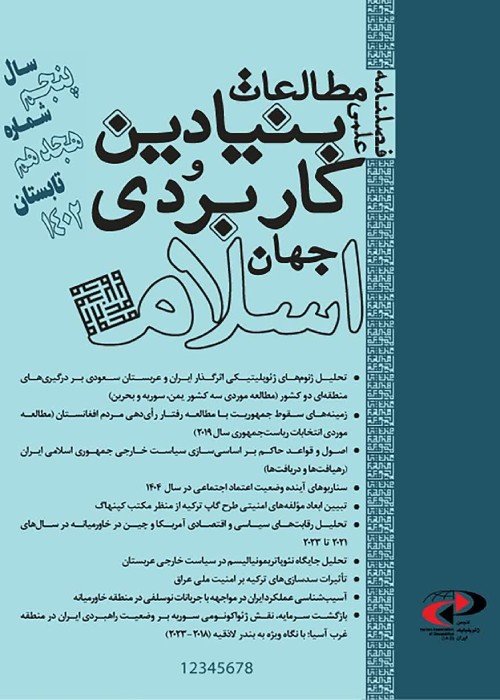Pathology of Iranian foreign policy from the perspective of neighboring policy
Relations with neighbors are the starting point of countries' foreign policy. The quality of the relationship with the neighbors also determines the order or interactive confrontational structure in the area. Stressful and unstable areas are either the product of tense neighborly relations or the result of flawed neighborly relations. On the other hand, calm and stable areas are the product of regimes and rules that depend on neighborhood relations. Neighborhood relations, not necessarily neighbor relations, naturally lead to endogenous regionalism. Relative peace and stability, mutual coexistence, minimal understanding of the main issues and political and security interdependence, even asymmetrically, are the most important features of endogenous regionalism. In this type of regionalism, the interventions of extraterritorial powers are also balanced. Negative interventions of extra-regional powers decrease and their positive interventions increase. The European Union and North America and East Asia are three models of regionalism in which the starting point of the regionalization process has been neighborhood relations. Neighboring is the beginning of foreign relations and the starting point of endogenous regionalism. Relative peace and stability and the gradual reduction of the negative interventions of extraterritorial powers are the consequences of the realization of neighboring policy and the beginning of endogenous regionalism. Successful regionalism in Europe, North America, and East Asia also began with neighboring politics. Neighboring policy, which regulates the normative dimensions of relations with neighbors, is a strategic policy for the Islamic Republic of Iran; despite the official policies of the Islamic Republic, the realization of neighborliness in Iran's foreign policy has always faced serious obstacles. In this research, we intend to explain the most important obstacles to the realization of neighboring policy for Iran in a scientific way, while explaining the neighboring theory. Accordingly, we have designed the question: "What are the most important challenges to the implementation of the neighboring policy and what strategies can be drawn to overcome these obstacles?". The hypothesis is: "dual perspective of hegemony-inspiration in Iran's foreign policy" in the first place and the "dual trust-balance" in the second place, are the most important obstacles to the realization of neighborhood policy. The solution of the first double standard and the management of second double is the most important issue of the foreign policy of the Islamic Republic for the realization of the neighboring policy. The method of confirming the hypothesis in this article is explanatory. Neighborhood policy is a systematic, gradual, and delicate process that requires elite consensus, political elite self-confidence, confidence-building, trust-building, and participatory pursuit by the initiator of neighborhood policy in a relatively stable region with minimal foreign intervention. Neighborhood policy will gradually create a region with internal rules and regimes, and will include peace and stability and the reduction of negative interference by foreign powers. The implementation of this policy in Iran faces structural and brokerage obstacles. The dual perspective in theory and practice is the first obstacle. In the upstream documents and practice of the foreign policy of the Islamic Republic, a vague and dual perspective is evident. This duality is solvable. The foreign policy perspective must be clearly and concisely defined. Iran's foreign policy must choose between inspiration and hegemony. The realization of hegemony has very serious obstacles in front of it, while it is in complete conflict with the neighborhood policy; While inspiration strengthens and supports that neighborhood policy and the means to achieve it are available. After defining a revised foreign policy outlook, it is essential that the Iranian diplomatic apparatus manage the process of balancing power in the turbulent Middle East with the process of building trust in neighborhood policy. The management of these two processes will be the main issue of the Islamic Republic's foreign policy for the realization of the neighborhood policy and the development of endogenous regionalism in the Middle East.
- حق عضویت دریافتی صرف حمایت از نشریات عضو و نگهداری، تکمیل و توسعه مگیران میشود.
- پرداخت حق اشتراک و دانلود مقالات اجازه بازنشر آن در سایر رسانههای چاپی و دیجیتال را به کاربر نمیدهد.


